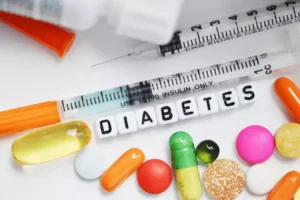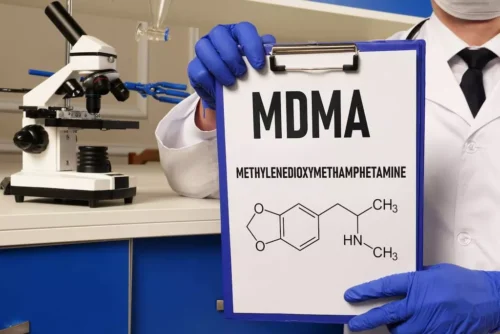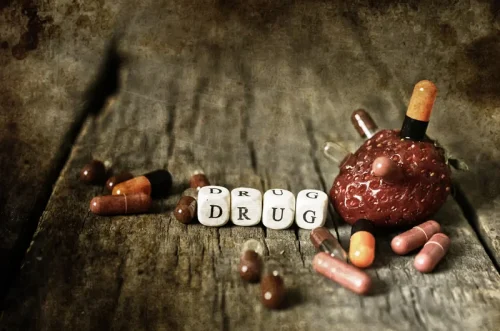
Take advantage of these therapy sessions to strengthen your relationship with your loved one and promote healing within the family unit. When a loved one enters rehab, it’s essential to provide ongoing support to help them navigate their recovery journey successfully. how to get someone into rehab Here are three key ways you can support your loved one throughout their rehab experience. By providing ongoing support and encouragement, you can help your loved one navigate the challenges and maintain their commitment to a healthier and happier life.

What Is Addiction Treatment?
Your intervention professional can help you figure out who should be on your team. It’s true that some reluctant rehab patients ultimately recognize the benefits of sobriety and that this realization drives their success. However, in most cases, rehab only works for those who are personally committed to overcoming their addiction. Obviously, laws like this only apply to the most extreme situations when the individual is truly unable to make decisions for themselves. The Baker Act isn’t meant to override an individual’s objections to seeking help. You should also consider joining a support group for people with addicted loved ones.

Release Recovery Westchester
The New York State Office of Alcoholism and Substance Abuse Services (OASAS) oversees and licenses treatment providers in the state of New York. You can visit the OASAS’ website for an overview of the process of accessing treatment in the state and for answers to common questions. According to this study about the impediments to the success of involuntary treatment, coercive https://ecosoberhouse.com/ treatment has many challenges which need to be addressed to ensure successful treatment. Even with all of the support they will receive, a person has to take responsibility for their own recovery journey. You have your reasons why you want this person to get on the path to recovery. But your reasons won’t be powerful enough fuel for the challenging processes ahead for them.
Consult a Medical or Mental Healthcare Professional
It involves a structured and planned conversation aimed at helping the individual realize the impact of their substance abuse and the need for professional help. You could also try to get their doctor to help or ask a medical professional to discuss addiction with them. A rehab clinician may be able to provide an intervention, which involves an organized attempt to confront a loved one about how their alcohol or drug abuse has affected all those around them. You would likely do anything to get a loved one, who struggles with substance abuse, the addiction treatment and help they need. For some who suffer from substance abuse, talking to them about their behavior and your concerns is enough to get them to seek treatment.
- Also, keep in mind that although you have the power to support your loved one and show you care, you cannot control their actions — they are responsible for their recovery.
- Homelessness has been shown to be linked to substance abuse as both the cause and result.
- Contact the insurance provider to get detailed information about the coverage limits, in-network facilities, and any pre-authorization requirements.
- This will help you present your concerns with confidence and knowledge, making it easier for the person to understand the importance of seeking professional help.
- Additionally, it’s crucial to manage your expectations and understand that the decision to enter rehab ultimately lies with the individual.
- The New York State Office of Alcoholism and Substance Abuse Services (OASAS) oversees and licenses treatment providers in the state of New York.
The Best Inpatient Physical Rehab Centers
- Remember, the decision to enter rehab ultimately lies with the individual struggling with addiction.
- There are also free treatment centers that provide outstanding care, though waitlists may make this a less desirable option when urgent treatment is necessary.
- Selecting the appropriate time and place for the conversation is crucial to ensure a comfortable and conducive environment.
- Private rehabs, on the other hand, offer exclusive treatment options and typically do not rely on insurance coverage for payment.
According to NAMSDL, 37 states have laws that allow for the involuntary commitment of individuals suffering from a SUD. While there are laws in place that allow for involuntary commitment, many people may not be aware of this option or how the process is started. Involuntary rehab refers to imposed substance abuse treatment for individuals who are unable or unwilling to seek treatment for themselves.

- Whether it’s the duration of stay, the level of care, therapy modalities, payment options, or individualized support, choosing the right addiction treatment sets the foundation for lasting transformation.
- Involuntary commitment laws are not in place in all U.S. states, but the laws are changing.
- Familiarize yourself with the admission process, as it can alleviate some of the concerns or uncertainties they may have.
- Insurance covers rehab for addiction, making recovery more accessible and affordable.
- Because of the link between the problems, the prevalence of mental health problems helps us to understand substance abuse in New York.